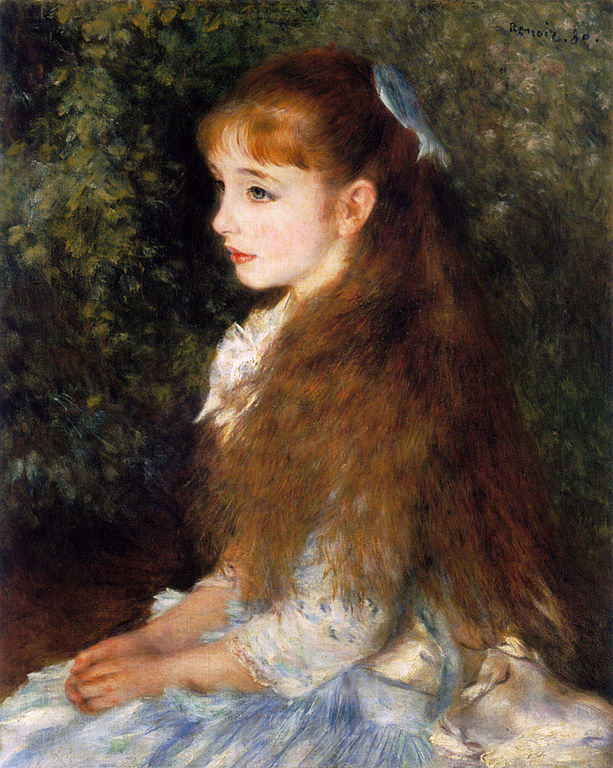
This beautiful poem, whose title means “to his little lady” (or “mistress”), expresses the poet’s love for a young girl, and at the same time a desire to stop before this love could grow too strong. Anyway, the girl will soon leave the “fairy-land” of childhood and grow into adulthood, and this could spell the end of that love’s magic.
The poem was first published in The Book of the Rhymer’s Club in 1892. According to Flower and Maas, Dowson wrote it on October 18, 1890. He appended it to a letter to Arthur Moore dated October 19, 1890, where he titled it Ad Domnulam Meam, “to my little lady/mistress”, and he commented:
A mere trifle—pardon it—who can have inspired it?
It was indeed probably inspired by his beloved Adelaide Foltinowicz, who was aged twelve years and a half when he wrote it. In this letter, Dowson tells that he went to Notre Dame de France and there admired the “procession after Vespers of the Enfants de Marie,” where in “the long line of graceful little girls” he discerned his “special Enfant.”
AD DOMNULAM SUAM
Little lady of my heart!
Just a little longer,
Love me: we will pass and part,
Ere this love grow stronger.
I have loved thee, Child! too well,
To do aught but leave thee:
Nay! my lips should never tell
Any tale, to grieve thee.
Little lady of my heart!
Just a little longer,
I may love thee: we will part,
Ere my love grow stronger.
Soon thou leavest fairy-land;
Darker grow thy tresses:
Soon no more of hand in hand;
Soon no more caresses!
Little lady of my heart!
Just a little longer,
Be a child: then, we will part,
Ere this love grow stronger.
Source of the poem: Verses, in Ernest Dowson Collected Poems, R. K. R. Thornton with Caroline Dowson (editors), University of Birmingham Press (2003). The poem can also be found in The Poems of Ernest Dowson on ELCore.Net.
Source of the quote: The Letters of Ernest Dowson, Desmond Flower and Henry Maas (editors), Fairleigh Dickinson University Press (1967), letter 123, page 173.
Previously published on Agapeta, 2015/03/28.

